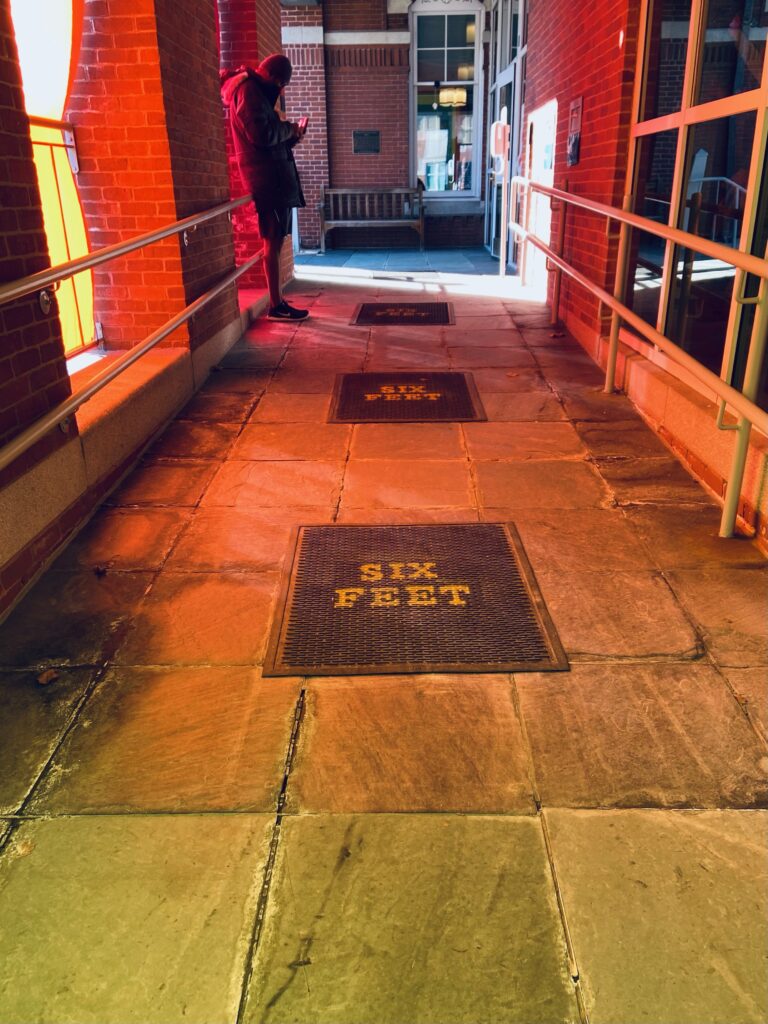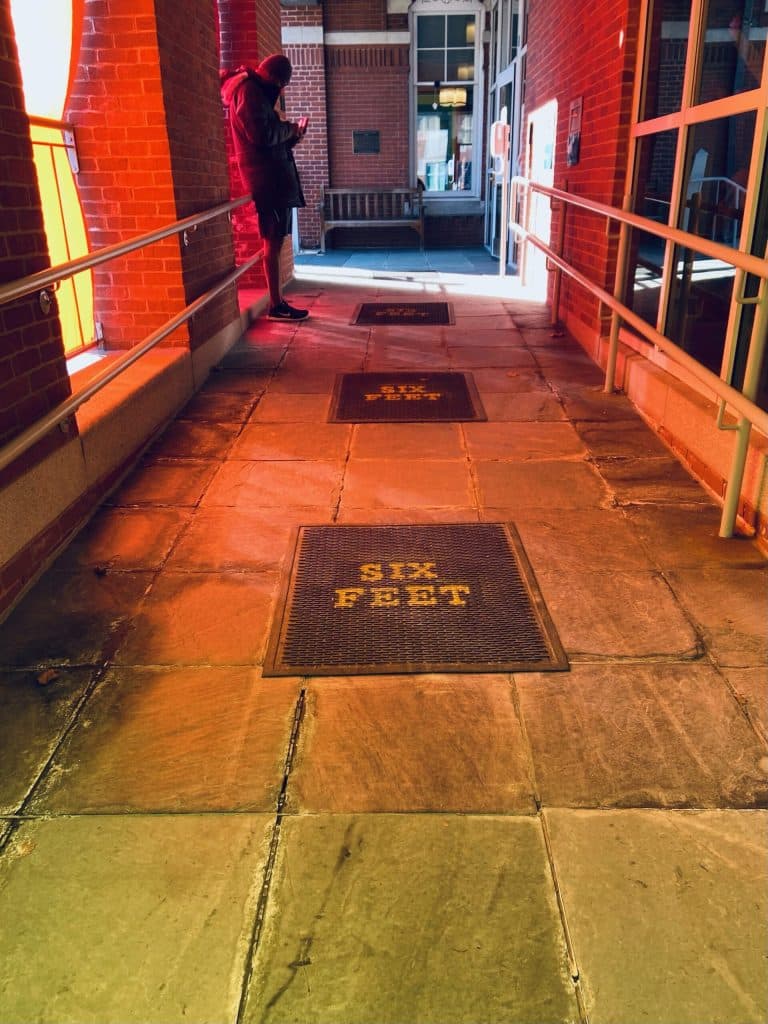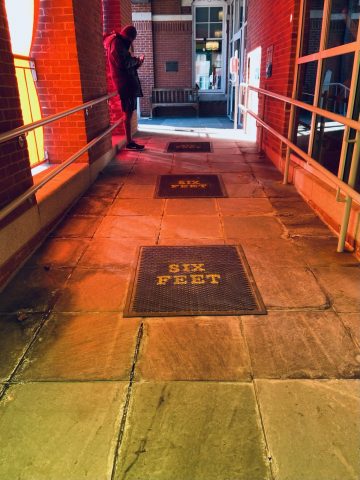The pandemic has taught me many things about going without. Stuck on a tiny island, bereft of a support system, my husband and I stretch to cover our bases. Our children need everything I have and more; my pre-k aged son is lonely and bored and hasn’t played with other kids in a long time or been to school in nearly a year. He also has a baby sister who often needs immediate attention, leaving him again by himself. I feel so much guilt over what this year is doing to him.

With sub-optimal mental health and constant sleep deprivation, we are dropping balls left and right.
And somehow, in a country that said “good luck” as a full domestic policy in a time of crisis (credit: Janan Graham-Russell), we at the same time must acknowledge our privilege. Living in the middle means not having enough, but still having more than the least.
Utilitarian ethics run strong in our faith tradition. Nephi kills Laban and steals his golden scriptures so a nation will not die in unbelief. Utilitarian ethics lead mothers to skip meals and sleep with the knowledge that those debts to their health will never be filled, but the family will eat and rest that night and some things must still be done.
Utilitarian ethics is another word for scarcity.
If there had been abundant copies of scripture, Nephi would never have killed Laban. If there was more time, more readily available healthy food, more hands to hold a restless baby, more free education and childcare, mothers would not have to fill all these needs at one time to their own detriment.
Sacrifice is holy, but when I ask for help in this mortal realm I do not feel holy. I feel broken – like a human who cannot do her basic job. When I ask for understanding or patience or knowledge, when I delegate responsibilities, when I take time to work during prime daytime hours, there is always an opportunity cost. And in a pandemic, everything I ask for is expensive.
Patience, understanding, advocacy, these things are not free. They are priceless, and we pay for them in time and work and heartache. Whether I am asking my husband to see my weariness or a stranger to check their privilege, I am hyper-aware that there is scarcity. Patience for me means less time for patience for someone else.
So I don’t ask. But I still need patience. I still need nourishment and rest. I still need grace.
This is my testimony today- that in the dealings of divinity, there is no scarcity. There is only abundance. That “all the wickedness in the world that man might do or say is no more to the grace of God than a live coal in the sea” (William Langland). That God does not upbraid.
Holiness is not a private endeavor. We all must work to bring the rare things of the world out into the open. The fate of the world rests on an economy of mercy and justice. We must not hoard grace. We must be honest and understanding as we navigate a world that lacks abundance.
I have found pools of eternity in my house – spots of silence to sit and weep and bathe my wounded soul in grace. When I rise, I fill my well with the scarce things of the world, and then get back to work. To believe in God is to believe that there will be enough – for everybody.




5 Responses
Oh my goodness. I feel this deeply. Thank you.
My children are grown, but I still feel those days of scarcity in my bones. Never enough money, never enough time, never enough me.
My children say otherwise; they remember the home-baked cookies and the home-sewn clothing and the books.
Take comfort. The world will turn.
This is so powerful. Thank for putting in to words something I felt but couldn’t say.
This was beautiful.
“spots of silence to sit and weep and bathe my wounded soul in grace.” Oh how this resonated with me, even though lately it seems there is a scarcity of grace. Thank you for your insights.